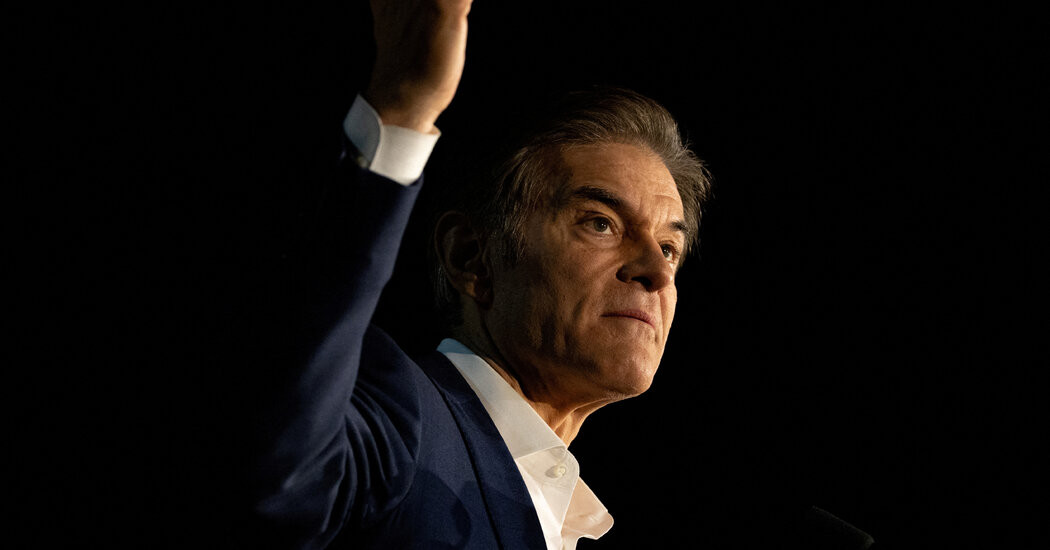

The heart surgeon turned TV star has championed healthy lifestyle habits. But he’s also promoted sham diet pills and ineffective Covid-19 treatments.
“America’s doctor” could soon have an even bigger hand in shaping health care in the United States.
On Tuesday, President-elect Donald J. Trump announced that he would nominate Dr. Mehmet Oz, a longtime TV personality, to run the Centers for Medicare and Medicaid Services, a powerful role that would give him control over a more than $1 trillion budget and influence over drug price negotiations, medication coverage decisions, the Affordable Care Act and more.
Dr. Oz, a heart surgeon by training, first gained fame with appearances on “The Oprah Winfrey Show,” where Ms. Winfrey referred to him as “America’s doctor,” and shot to stardom with the debut of his own daytime program, “The Dr. Oz Show,” in 2009. On and off the screen, he has used his influence as one of the nation’s most recognizable doctors to champion healthy habits like a nutritious diet. But he has also sown misinformation — about Covid treatments, weight loss hacks and unproven supplements. He has invested in drug companies, even as he has publicly taken aim at Big Pharma, and has profited from a medical device that he helped invent but that has been subject to several recalls.
Over roughly two decades in the public eye, Dr. Oz has drawn the ire of medical experts, members of Congress and even his own peers, including a group of 10 doctors who called for him to be fired from a faculty position at Columbia University, arguing he had shown a “disdain for science.” (The university appeared to quietly cut its public ties with the physician in 2022.)
Dr. Oz did not respond to a request for comment.
His nomination has alarmed some doctors and those who work in public health. “I just don’t know what side of Dr. Oz we’re going to see,” said Dr. Pieter Cohen, a physician and associate professor at Harvard Medical School who studies supplements. “I hope we see the meticulous cardiothoracic surgeon, and I hope we don’t see the promoter of unproven botanicals.”
Here are five key areas of Dr. Oz’s track record on health.
Dr. Oz has a long history of promoting dubious weight loss products, including raspberry ketones, garcinia cambogia and green coffee bean extract, frequently extolling their “magic” or “miracle” ability to help people drop pounds. Many of these claims lack evidence or have been proved false.
In 2014, a Senate subcommittee grilled Dr. Oz about his endorsements of weight loss products, with Senator Claire McCaskill telling him that “the scientific community is almost monolithic against you in terms of the efficacy of a few products that you have called miracles.”